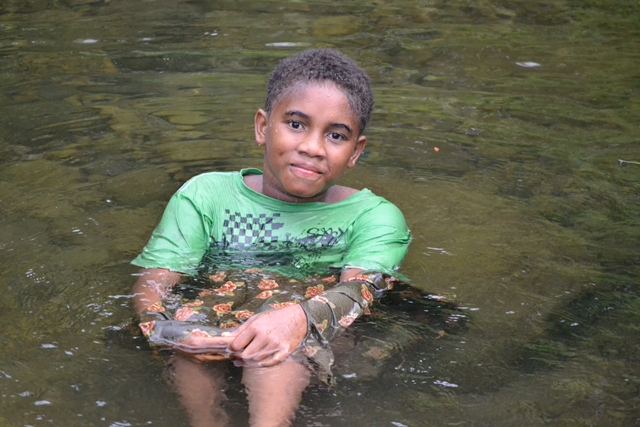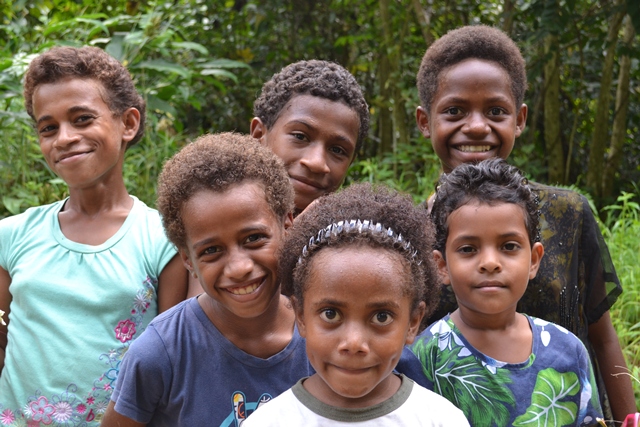When girls are not assured the same opportunities as boys, whether one speaks of the level of ones' education or which profession one would like to pursue, we as families, villages, societies and nations are short-changing ourselves.
For when girls suffer such realities, economies deprive themselves of half their potential professionals - scientists, innovators, socio-economic think-tanks - and leaders who could ensure holistic national and regional development approaches, because women see things differently and thus complementarily to their male counterparts.
It is not just about a girl anymore when culturalism and individual attitudes perpetuate such practices; levels of poverty will naturally remain when half the country's workforce are deprived of opportunities to be meaningful partakers of their future development because they have to leave school to ensure the male child completes school or because of an unplanned adolescent pregnancy.
The good news is we know why we should reverse the trend that devalues girls to the detriment of families, villages and nations. It is now up to us as individuals to decide for girls and bring about change that will benefit all of us. The question is: do we have the societal and political will to give it a go.
The United Nations Population Fund (UNFPA), its sister agencies and civil society partners joined governments to mark the second International Day of the Girl, globally celebrated on October 11. In 2011, member states of the United Nations General Assembly agreed to such a day to recognise girls' rights and the unique challenges girls face; this year's theme was "Innovating for Girls' Education".

"Investing in girls and enabling them to exercise their right to make informed choices about their health, their bodies and their future is one of the surest ways to transform individual lives, strengthen families and communities, and ensure equitable, sustainable development for all," UNFPA executive director Dr Babatunde Osotimehin said in a statement marking the International Day of the Girl.
"UNFPA, the United Nations Population Fund, is innovating for girls. New school curricula, including for age-appropriate comprehensive sexuality education, are helping transform gender norms and enabling girls to fulfil their human rights, including their basic rights to education and health.
"Through sexuality education, girls and boys are being equipped with the critical thinking and decision-making skills they need as they come of age, start relationships, and prepare for the future."
The Pacific region is progressive in this context considering that 10 governments including Fiji are in various stages of reviewing and updating its education curriculum, with technical support from the UNFPA Pacific Sub-Regional Office and other development partners, for the integration of comprehensive sexuality education (CSE), better known as family life education (FLE).
Courageous leadership in-country allowed fundamental shifts in the way things were done: the FLE program was shifted from the ministries of health to the ministries of education for example, a crucial prerequisite as the latter are responsible for curriculum development and implementation; teachers selected to be trained for the new FLE programs were also trained to write the curricula themselves thus producing revised FLE curricula considerate of their own realities, cultural and social nuances to create home-grown and evidence-based curricula; and some governments agreed that age-appropriate FLE needed to start from primary school level, taking "early intervention" to new levels.
Children who benefit from family life education classes would now be able to receive holistic teachings of an individual's biological development, punctuated with life skills, socio-economic development components - one's interactions, self-esteem, confidence, tertiary education and career path plans, and other adolescent-related issues. Teaching methods and contents are also specific to age.
Education for all girls is a basic human right and thus not only an obligation that has to be provided for by the UN member state but it is also a moral imperative; girls are human beings first and foremost before anything else that stereotype and/or fanaticism defines them by.
If allowed to complete secondary school at least, the transformative impact of this milestone determines how a country performs when it comes to development aspirations like those articulated in the (eight) Millennium Development Goals (MDGs) - poverty reduction and equitable growth, mortality and fertility rate reduction and so on.
When a girl is allowed to remain in secondary school, she is six times less likely to marry young. The UNFPA State of World Population report 2012 By Choice, Not by Chance reports that globally, births by uneducated adolescent girls between the ages of 15 and 19 have increased by 7 per cent in the past decade, while births by girls with secondary (or further) schooling have declined by 14 per cent.
Delayed marriage and childbirth can translate to fewer maternal and infant deaths, lower fertility rates, lower risk of HIV infection, and increased economic and political participation. Schools are crucial platforms in our collective attempt to enhance our children's skills and knowledge to ably navigate their way through adolescence, and eventually only when they choose to, embark into parenthood.
The recently-released 2013 Pacific Regional MDGs Tracking Report echoes global sentiments that gender equality and empowering women is central to achieving all the Millennium Development Goals. This process, one can safely say, begins from the girl-child. The report says that except for Papua New Guinea, Solomon Islands and Tonga, all Pacific island countries are on track to achieve gender parity in education, although there are concerns generally-speaking about the quality of education.
The report further states that higher education for young women are not leading to better employment outcomes as (gender-based discriminatory) barriers remain; that across the region, traditional views that leadership is for men continue to influence electorates; and that high prevalence and incidence of violence against women (VAW) across most island nations continue to hinder progress. The need for approaches considerate of processes in entirety and not just components could not be more emphasised.
The UNFPA Pacific Sub-Regional Office, which has been also supporting governments to conduct studies on the prevalence of gender-based violence have, among other facts, affirmed first sexual experiences before 15, and that the younger the girls were, the more likelihood that it was forced.
A girl's inability to be in control of her own body increases the chances of adolescent pregnancy for example, which then inhibits her desire to complete her education to the highest level she is capable of reaching. Gender-based violence contributes to the fact that 65 million girls who should be in school, are not.
Educating this generation of girls will also determine how the next generations of boys and men view and value girls and women. In most cases, girls grow up to be mothers who mould the worldview and attitude of her children. She can either perpetuate gender inequities by upholding harmful cultural practices or she can be the empowered individual who can break out of the cycle of poverty and determine the size of her family, pursue the best for her children, who can influence the way her sons treat girls and women, the list goes on.
For now however, let's never forget that when we educate a girl, we are educating and empowering our families, villages and nations. It is therefore vital that girls' education should be part of a comprehensive approach that includes health, economic and political empowerment, and protection from violence, as Dr Osotimehin said in his statement.
"If a girl is educated, healthy, safe and skilled, she will invest in herself and her present and future family, charting a new course for our common future," he said.
"Tomorrow is today aged 10, and it's a girl. Change her life, change the world."



